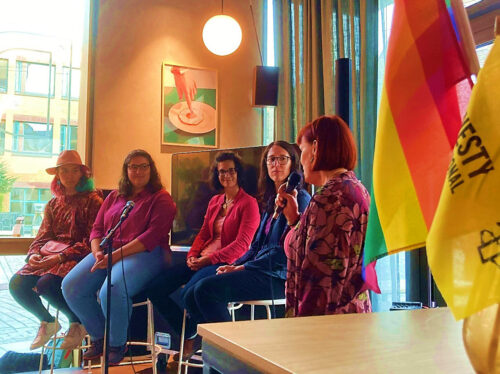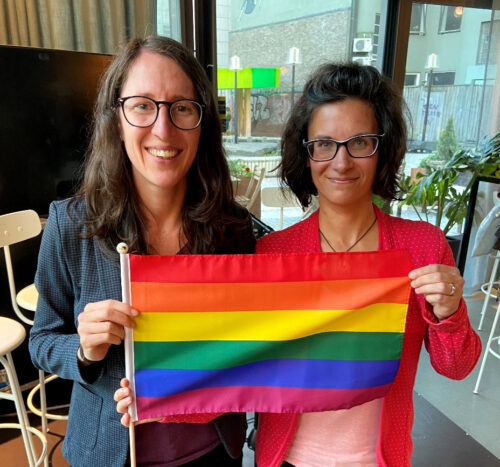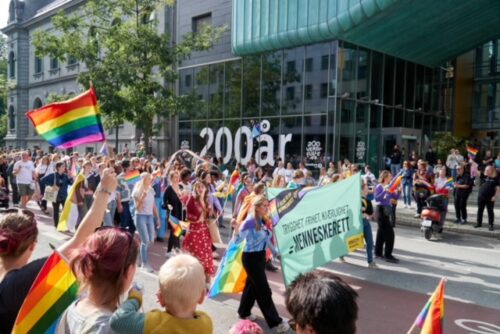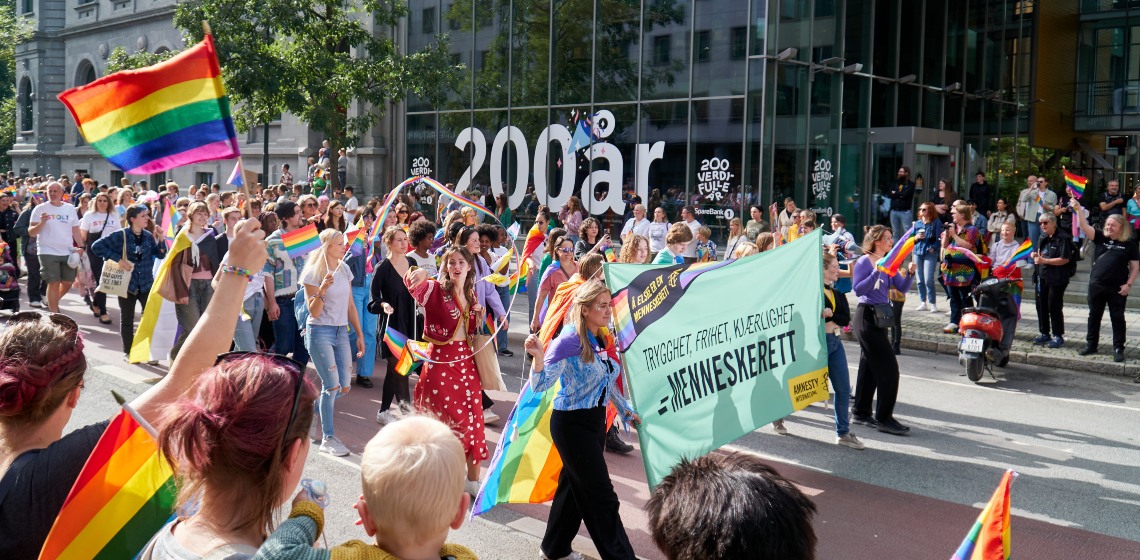In most of the cities in the world Pride is equated with summer and sizzling temperatures, because the LGBTQ+ community celebrates its biggest event typically in June, July, and August. Since Trondheim is the home of Norway’s largest university and a student city, we could say the city sleeps in the summer as most of its population, the students, are on vacation. Compared to this, in September, with the start of the semester the city noticably comes alive: something is always happening. That’s exactly why Trondheim Pride is organized in the first week of September. This year, qLit was invited to a panel discussion called Queer When Democracy Fails.

At the panel discussion organized by Amnesty International, we spoke about the LGBTQ+ situation in Hungary, Poland, and Alaska (and originally Turkey). The event was prompted by the observation that, in recent years, more and more states have been classified as “incomplete democracies”, including our—to use Orban’s term—“illiberal democracy”. In many cases this has come with the erosion of human rights, including LGBTQ+ rights, and the panel sought to address this.
The main themes of the discussion were the political system, education, rainbow families, and the situation for trans people. The LGBTQ+ situation is undoubtably worse in the countries of the invited panel members than in Norway, but since we are witnessing a global recriminalisation, the situation of LGBTQ+ people is worsening everywhere. In Scandanavia, recently there are more signs of an upsurge in exclusion, for example, many schools forgot to display the Pride flag this week, or flags were somehow burned.

That is why the last, and perhaps most important, question of the debate was whether there is hope or a way out. We could not give a clear answer to this question. But while there is so much concern in us and around us, the event’s conclusion still was that the main resource for us is international solidarity and community (local and global). Also, the realization that statements of politicians or the system of a country often do not reflect the feelings of everyday people. There is more visibility and more allies. A few days after the panel, at the Pride Parade we experienced exactly this as the whole city marched, sang, and laughed together, independent of nationality, workplace, age, or whether they identified as LGBTQ+.


